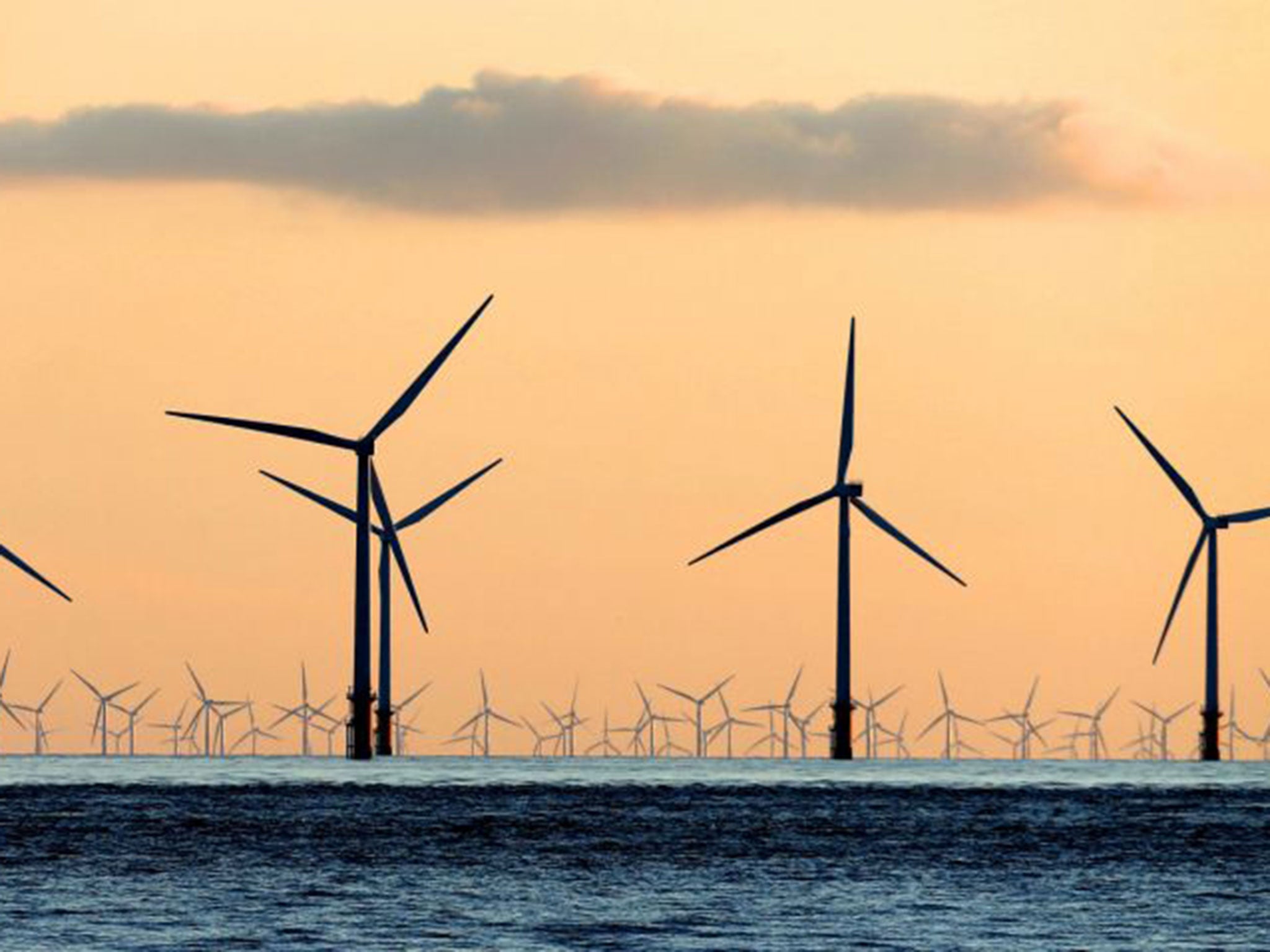Government 'preparing to scrap EU’s green energy targets after Brexit’
Target requires EU to fulfil at least 20 per cent of total energy needs with renewables by end of decade through attainment of individual national targets

Your support helps us to tell the story
From reproductive rights to climate change to Big Tech, The Independent is on the ground when the story is developing. Whether it's investigating the financials of Elon Musk's pro-Trump PAC or producing our latest documentary, 'The A Word', which shines a light on the American women fighting for reproductive rights, we know how important it is to parse out the facts from the messaging.
At such a critical moment in US history, we need reporters on the ground. Your donation allows us to keep sending journalists to speak to both sides of the story.
The Independent is trusted by Americans across the entire political spectrum. And unlike many other quality news outlets, we choose not to lock Americans out of our reporting and analysis with paywalls. We believe quality journalism should be available to everyone, paid for by those who can afford it.
Your support makes all the difference.Ministers are reportedly preparing to scrap the European Union’s green energy targets after Britain’s exit from the bloc.
Government sources told The Daily Telegraph the target – under the EU’s Renewable Energy Directive – is likely to be binned after Brexit.
It requires the EU to fulfil at least 20 per cent of its total energy needs with renewables by the end of the decade through the attainment of individual national targets.
“All EU countries must also ensure that at least 10 per cent of their transport fuels come from renewable sources by 2020,” the EU commission adds.
The targets in individual nations range from a low of 10 per cent in Malta to 49 per cent in Sweden.
Britain’s target is 15 per cent, including three sub-targets of 30 per cent in electricity, 12 per cent in heat and 10 per cent in transport.
Last year MPs on the now-defunct Energy and Climate Change Committee warned that the UK, on its current course, will fail to achieve its 2020 renewable energy targets.
While the so-called Great Repeal Bill, introduced to the Commons before the parliamentary recess, will convert all EU law and directives onto the UK’s statue book in an extensive copy-and-paste exercise, ministers – and future governments – could technically seek to scrap individual pieces of legislation if they so desired.
Former Environment Secretary and Tory MP Owen Paterson told The Daily Telegraph he would be “very happy” to see the back of the green energy directive.
He added: “It's distorting the whole energy market. It's like the Sheriff of Nottingham – it transfers money from my poorest constituents to my wealthiest constituents who are putting up pointless wind turbines heavily subsidised.”
But the Department for Business, Energy and Industrial Strategy declined to comment on the reports, and instead reaffirmed the UK’s commitment to tackling climate change.
In a statement they added: “The UK is an international leader in tackling climate change and played a major role when the world came together in Paris to reach the ambitious deal to reduce global CO2 emissions.
“Under the UK Climate Change Act, we set our own ambitious target of at least 80 per cent emissions reduction by 2050 and have already made good progress with emissions 38 per cent lower today than in 1990.”
The report also comes after civil service documents were photographed on a train last week, detailing plans to put more efforts into international trade rather than the tackling climate change – a likely result of the demands from Britain’s exit from the EU.
“Trade and growth are now priorities for all posts – you will all need to prioritise developing capability in this area,” the note said, adding: “Some economic security-related work like climate change and illegal wildlife trade will be scaled down.”
BEIS insisted these notes were unclassified and based on a conference which took place several months ago.
In a statement, the department added that the UK is a global leader in tackling illegal wildlife trade and a “key part of worldwide efforts on climate change” – including implementing commitments made under the historic Paris Agreement.
“Our commitment to both issues is strong as ever,” it added.
Join our commenting forum
Join thought-provoking conversations, follow other Independent readers and see their replies
Comments